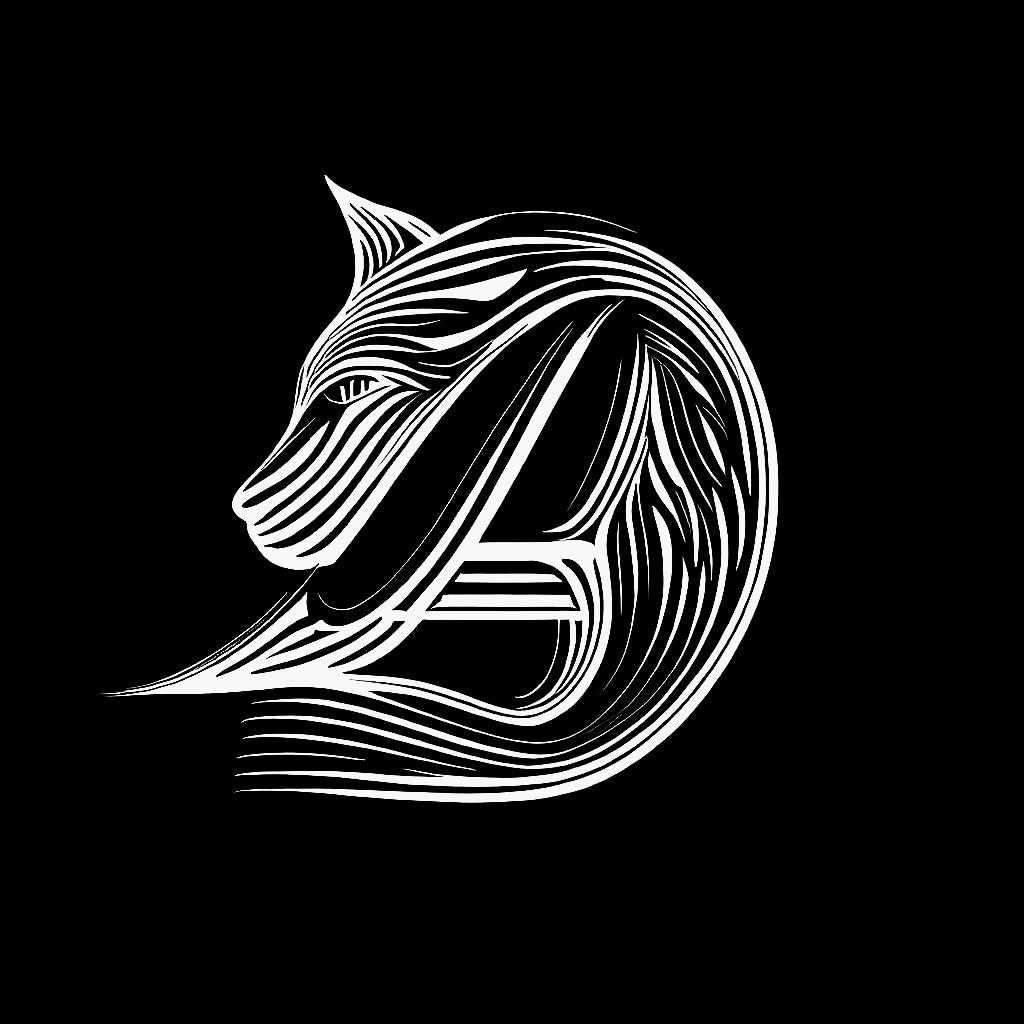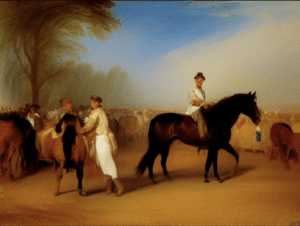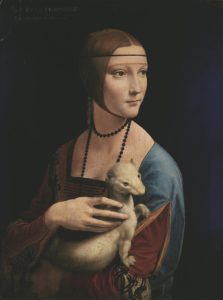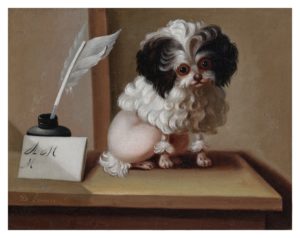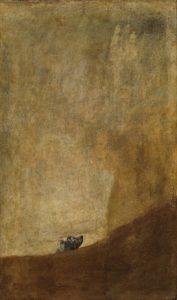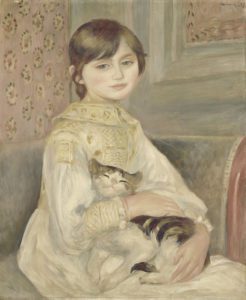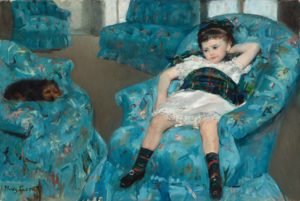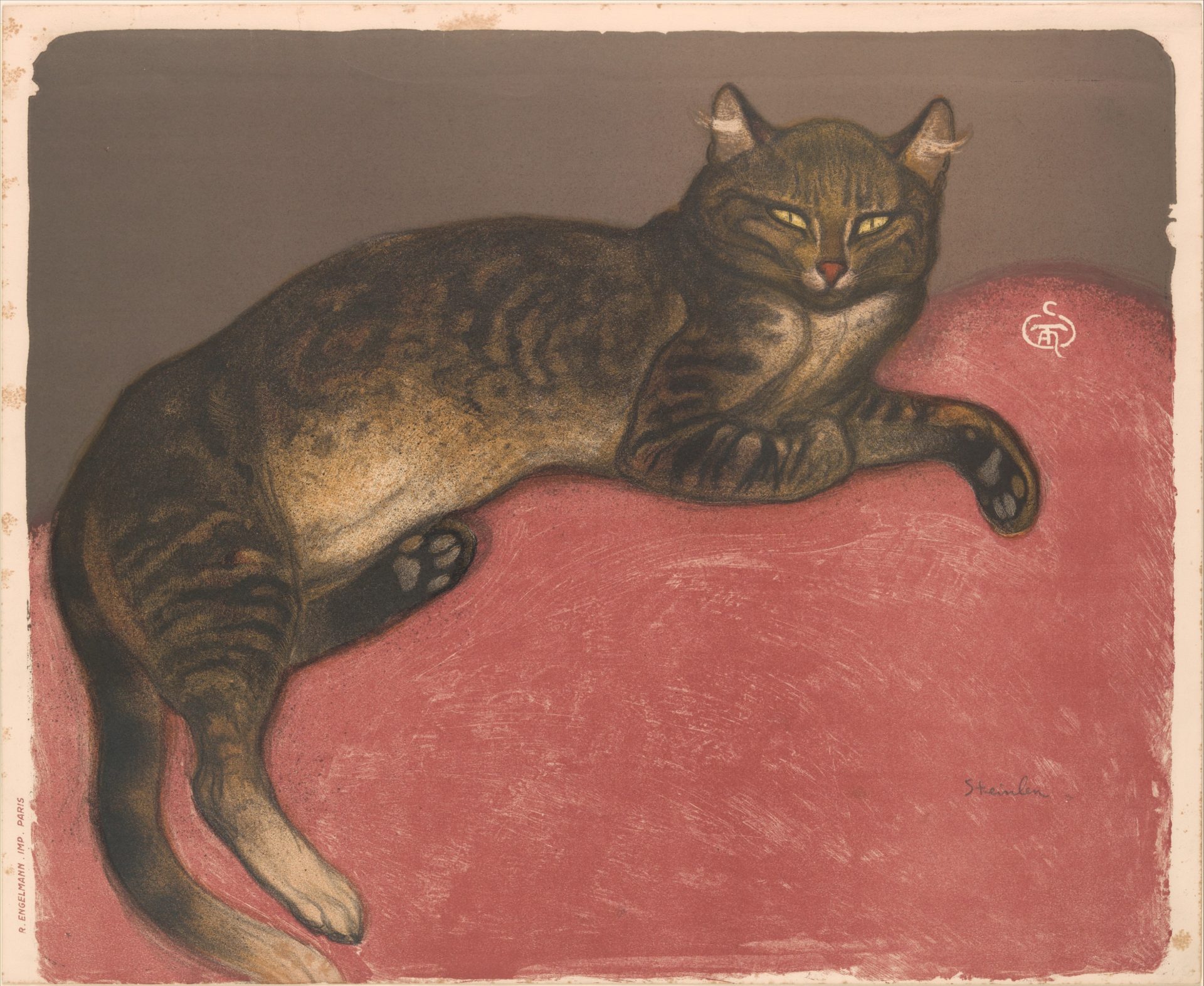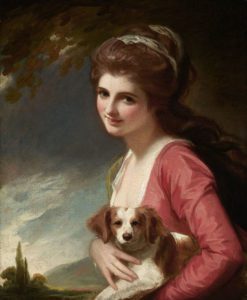Amid the grandeur of French art, nestled between ornate portraits and spectacular landscapes, resides a lesser-known yet equally enchanting piece: a portrait of a small poodle, reputed to be “Pompon,” a cherished companion of Marie Antoinette herself. The brush behind this captivating artwork belongs to none other than Jacques Barthélémy Delamarre, an artist whose name may not ring as familiar as Degas or Monet, but whose works hold a charm all their own. This blog post endeavors to unravel the tale behind this unique art piece, connecting the dots of history, art, and a love for animals that transcends centuries.
The Artist at Heart: Jacques Barthélémy Delamarre
Jacques Barthélémy Delamarre, born in 1725, was a French painter whose artistic journey was as intriguing as the works he left behind. Primarily known for his portrait art, Delamarre painted not just the aristocracy of his time, but also their beloved pets. Pompon’s portrait, a delicate and intimate rendering of a small poodle, stands as a testament to Delamarre’s versatility and his keen ability to capture the essence of his subjects, be they human or animal.
A Royal Affection: Pompon, the Poodle of the Palace
Marie Antoinette’s fondness for her pets, particularly Pompon, is well-documented in the annals of history. Her letters reveal her affection for her canine companion, her comforter during the tumultuous periods of her life. Delamarre’s portrait of Pompon not only encapsulates this affection but also reflects the unique role that pets played in the French court’s life – symbols of status, yes, but also cherished friends and confidants.
The Style of the Times: The Continental Cut
And then, there is the question that has intrigued many viewers of this portrait: why is Pompon half-shaved? The answer lies in the “Continental Cut,” a style traditionally associated with poodles. This style, which leaves the rear half of the poodle almost bare with pompoms around the ankles, was not merely aesthetic. It was initially designed to help poodles, which were used as water retrievers, swim more efficiently while protecting their vital organs and joints from the cold. Over time, this practical style became a fashion statement, particularly in the aristocratic circles of France, symbolizing both elegance and extravagance.
Beyond the Canvas: The Emotional Essence of Delamarre’s Art
Delamarre’s depiction of Pompon goes beyond the mere physical. The poodle’s alert eyes, the tilt of its head, and the overall posture exude an intelligence and an emotional depth that is often hard to capture on canvas. The portrait stands as a testament to Delamarre’s masterful ability to infuse his art with emotional resonance, bringing to life not just the physical likeness but also the personality and spirit of his subjects.
The Paw Print on History: The Legacy of Delamarre’s Canine Portraits
Despite being overshadowed by his more famous contemporaries, Delamarre’s work, especially his animal portraits, holds a significant place in art history. His ability to imbue animals with dignity and depth challenged the conventional artistic norms of his time, paving the way for future artists to explore animal portraiture more deeply. Pompon’s portrait, in particular, stands as a historical document of a time when pets began to be seen not just as status symbols, but as individuals with their unique personalities, worthy of being immortalized in art.
The Delamarre Effect: Influence and Inspiration
Delamarre’s work continues to inspire artists and animal lovers alike, long after his brushes have been laid to rest. His ability to capture the spirit and personality of his subjects, particularly animals, resonates with many contemporary animal portraitists. From the intricate details of the Continental Cut to the expressive eyes of Pompon, Delamarre’s influence continues to ripple through the art world, a testament to his skill and vision.
The Undying Bond: Art, Aristocracy, and Animals
Delamarre’s portrait of Pompon not only reflects the craftsmanship of a skilled artist but also provides a glimpse into the human-animal relationships of the past. Despite the passage of time and the transformation of societies, the bond between humans and their pets remains a constant. It’s a bond that is as evident in the lavish courts of Marie Antoinette as it is in the cozy living rooms of today’s pet owners. This portrait, thus, stands as a symbol of the undying bond between humans and animals, a bond that transcends time and social structures.
The Tale that the Canvas Tells: A Parting Stroke
The portrait of Pompon, as depicted by Jacques Barthélémy Delamarre, is more than just a piece of art—it’s a portal into a bygone era, a testament to the timeless bond between humans and their animal companions, and a beacon of inspiration for artists and animal lovers alike. The next time you glance upon this remarkable piece of art, remember the tale it tells—one of an artist, a queen, and a poodle who left an indelible mark on the canvas of history. In the end, Delamarre’s portrait of Pompon is a tribute to the universal love we share for our pets, a love that transcends centuries, cultures, and, indeed, even art forms. From the grandeur of the French court to the heart of modern-day animal lovers, this love remains unchanging, as enduring and evocative as Delamarre’s art.
